When it comes to what goes on behind the scenes, I like knowing how films are made. But at the same time, I take to heart the Coen Brothers’ hope/wish in “A Serious Man” to “accept the mystery”. I would prefer if movies just emerged from a primordial ooze fully-formed, attuned to the time and place of which they echo. When I’m watching “A.I. Artificial Intelligence”, a movie I like, I don’t want to get sidetracked into Steven Spielberg’s real-life relationship with his mother. That’s what “The Fabelmans” is for, duh.
I don’t want to get bogged down in the “origin story” of James Morosini, who wrote, directed and starred in “I Love My Dad”, based on his own personal experiences. It’s amazing enough that Morosini experienced such a roller-coaster emotional event, and turned it into a script. But to direct and star in the movie too? And fully, deeply re-live a fairly traumatic event? And to end up with a really great, really twisted movie too? Morosini’s “I Love My Dad” is a young man completely batting 1.000. We all already know too much! Let’s just enjoy the movie for what it is. And that is: demented.
Morosini plays Franklin, a young man on the cusp of college. Like a lot of young men, he’s shiftless, easily-confused by the adult world, and painfully alone. Part of that comes from not hearing from his workaholic father Chuck (Patton Oswalt), who is separated from the family. Unable to cope with his abandonment issues, Franklin decides to block his father from his social media. It’s a timeless story skillfully updated to modern times, the young man seeking to distance himself from the father he doesn’t wish to become. People complain about modern technology, but it’s largely giving people a way to relate to each other in familiar ways, only with the use of unfamiliar tools. Or, a way to not relate.
Panicked and insecure himself, Chuck invents a new social media profile, if only to keep up with his son and not interact any further. His first foolish mood is to try to capture his son’s attention by creating a digital avatar using the photos of a pretty teenaged girl. Franklin, one of those lonely young men Mark Zuckerberg was just talking about, figures he could use a friend, and suddenly there’s a match. Chuck tells himself he’ll be a silent observer, a vow that lasts perhaps five onscreen minutes. Soon, Franklin is smitten with this mysterious young woman his age.
Chuck is startled to see his son emerge from this antisocial bubble. To him, the deception is saving his son’s life. And so he continues the conversation, beginning to develop an emotional intimacy with his son despite his son being romantically attached to this fake persona. Chuck is at once concerned about his son’s mental health, but also, in a word, stupid. It’s a classic conflict: well-meaning fool must push a charade to the breaking point to do the good he wishes. So when the possibility of a road trip to see the young lady comes up, Chuck knows he’d be crushing his kid’s confidence by saying no to the possibility, while also denying himself quality time with the kid he loves. Nevermind that Chuck has to keep stalling, lest Franklin realize this is a trip to literally nowhere.
Patton Oswalt has always prided himself on being something of a patron saint to nerds, but he’s also a critical voice within that realm. He has had many routines about how much he loves Star Wars, but he also hates so much about Star Wars. His role in the squeamish “I Love My Dad” seems to follow a similar trajectory. Chuck is so dedicated to making sure he hasn’t raised a future school-shooter that he’s willing to go to obscene and probably-dangerous lengths, catfishing his own child, just to see an elusive smile on his face. It’s sweet and sour at the same time, and never at the same percentages.
I’ve posted a trailer below for “I Love My Dad” and I think it sells the movie well. But at the same time, it’s best to go into this completely blind, and to see exactly how absurdly, ridiculously far the film takes this premise. I could tell that this particular era of filmmaking (this was released shortly after the pandemic) was short on comedy, but this movie is consistently, ridiculously funny. Oswalt, one of the great stand-ups, isn’t always the most disciplined actor – one of the institution movies I saw in prison, a tiny Clive Owen indie called “The Confirmation”, featured Oswalt as a fearsome crime boss, and it was hilariously outside of Oswalt’s wheelhouse. But he largely plays the straight man in this, and his increasing discomfort with his own deepening lie is a nakedly honest portrayal of foolish compromise. This is one to see with your Dad, and to maybe never talk about ever again.
I am like most men in America – I was raised by a man who didn’t have much time for anything beyond conventional (and, in retrospect, unremarkable)masculinity. There’s a script to be followed – you try to become a man in his image, because it’s as much about soothing his ego about something that may appear different as it is knowing he made a new version of himself. Maybe your upbringing is harsh and toxic, maybe it’s conventional and dull. But as a kid, you grow up to avoid trouble from your Dad, avoid behavior and interests that don’t seem manly enough, avoid the harsh glare and maybe the physicality of an older man.
And then you go to prison, and it becomes a steroidal recreation of that. Suddenly, every authority figure you distrust is a version of your father. Suddenly you find yourself puffing out your chest, using the lower register of your voice. These officers put you in cuffs, but you’re trying to remind them that you’re still a man. You find yourself hiding any interest or activity that Dad wouldn’t like, artwork, creative hobbies. Anything with light colors. You are pantomiming toxic masculinity on a large scale, on a daily basis. Which sounds like a challenge, unless you’ve had practice for an entire lifetime. And then it just becomes a constant exercise of sorts.
Some of you go home and you see your father again. It is not the same. He is just another authority figure, looking to catch you for behavior outside of the norm. Some struggle with this. And like me, some just don’t want to be branded negatively for being a reader, for showing deference to women, for using larger vocabulary. I am thankful there were no difficulties for me leaving prison and encountering that relationship once again. But the dynamic has changed. Families are different now. It’s a lot harder for someone else to feel generous towards a father that did too much to foolishly “fortify” an already-stiff backbone. Fathers don’t mean the same thing after prison.

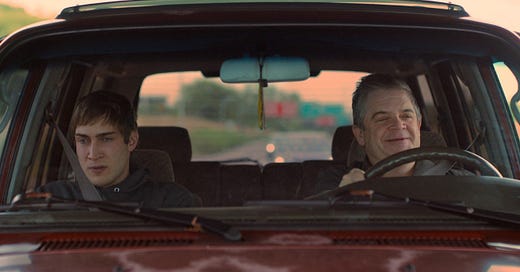



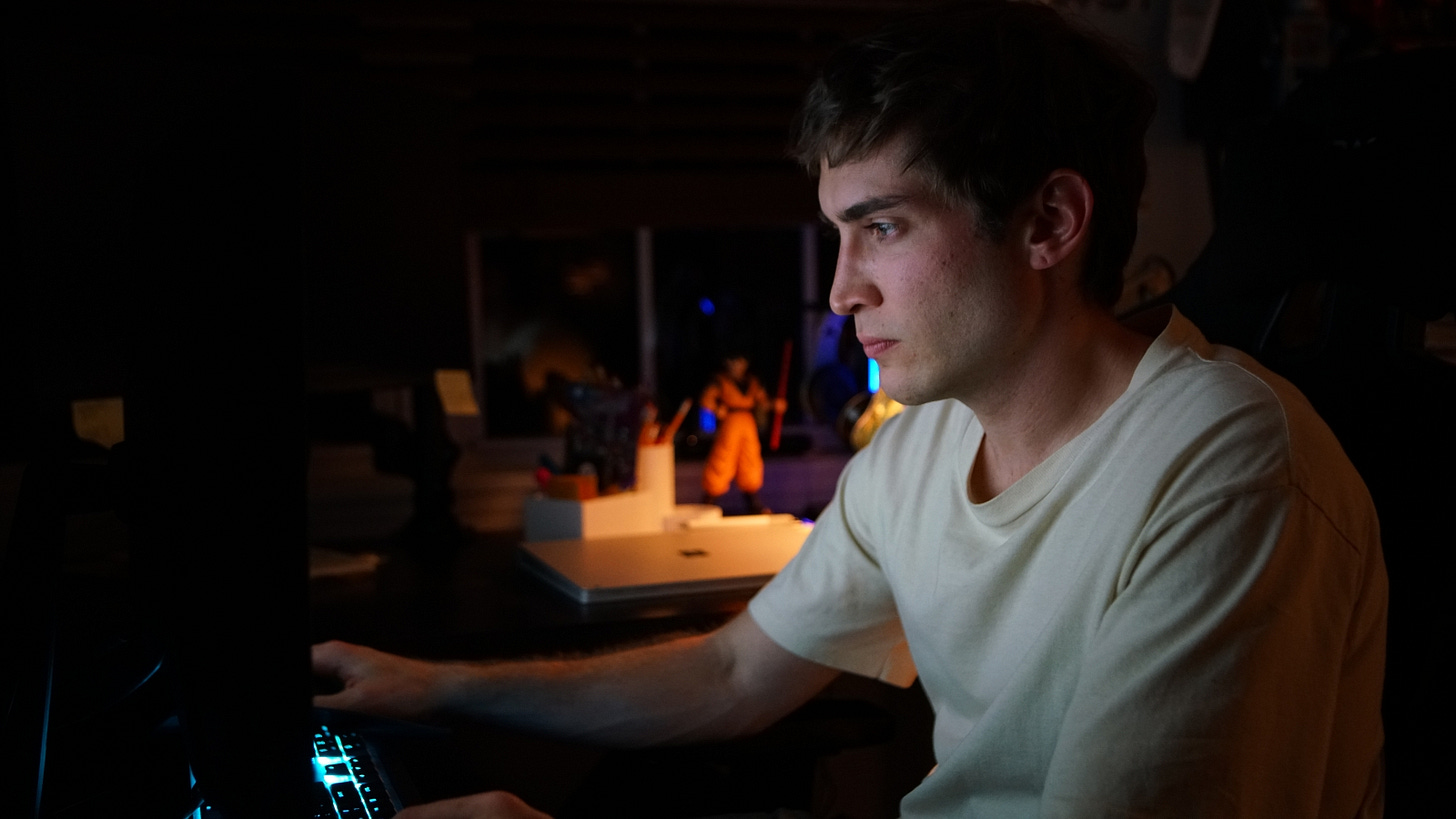
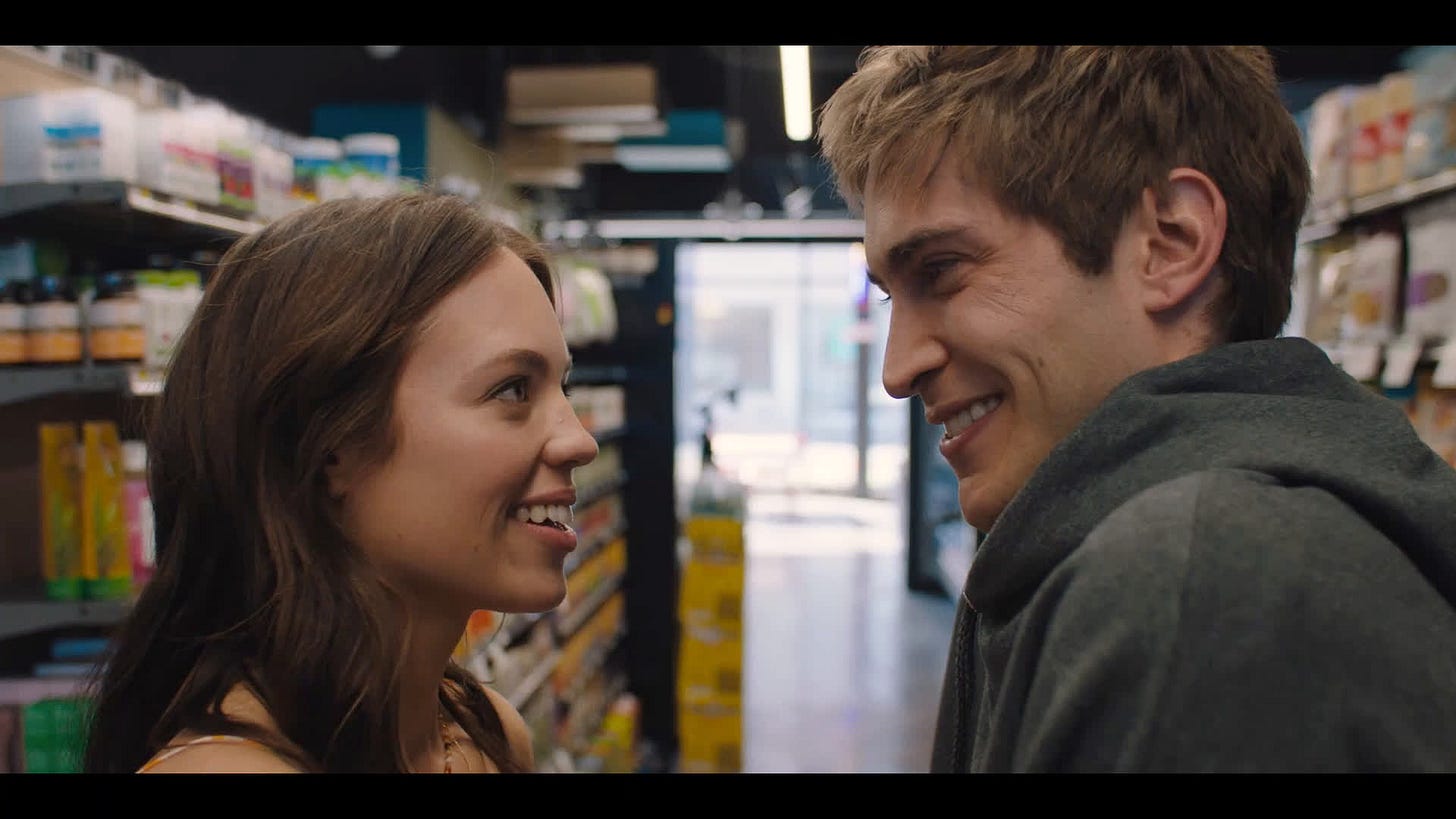
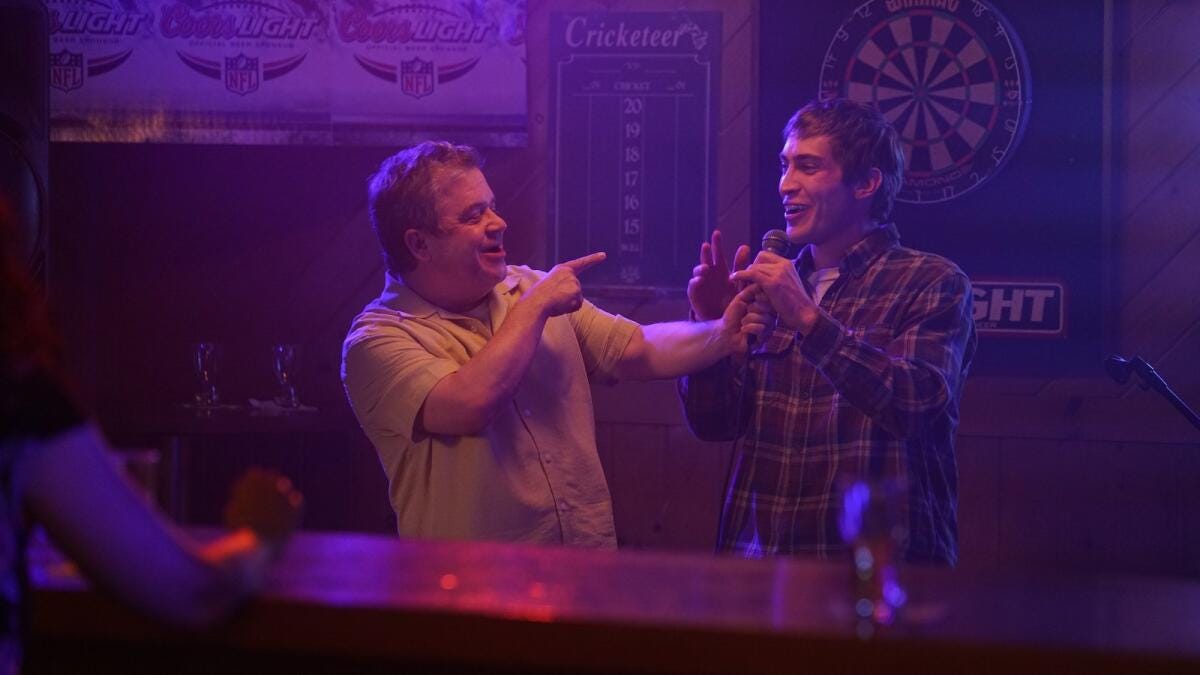
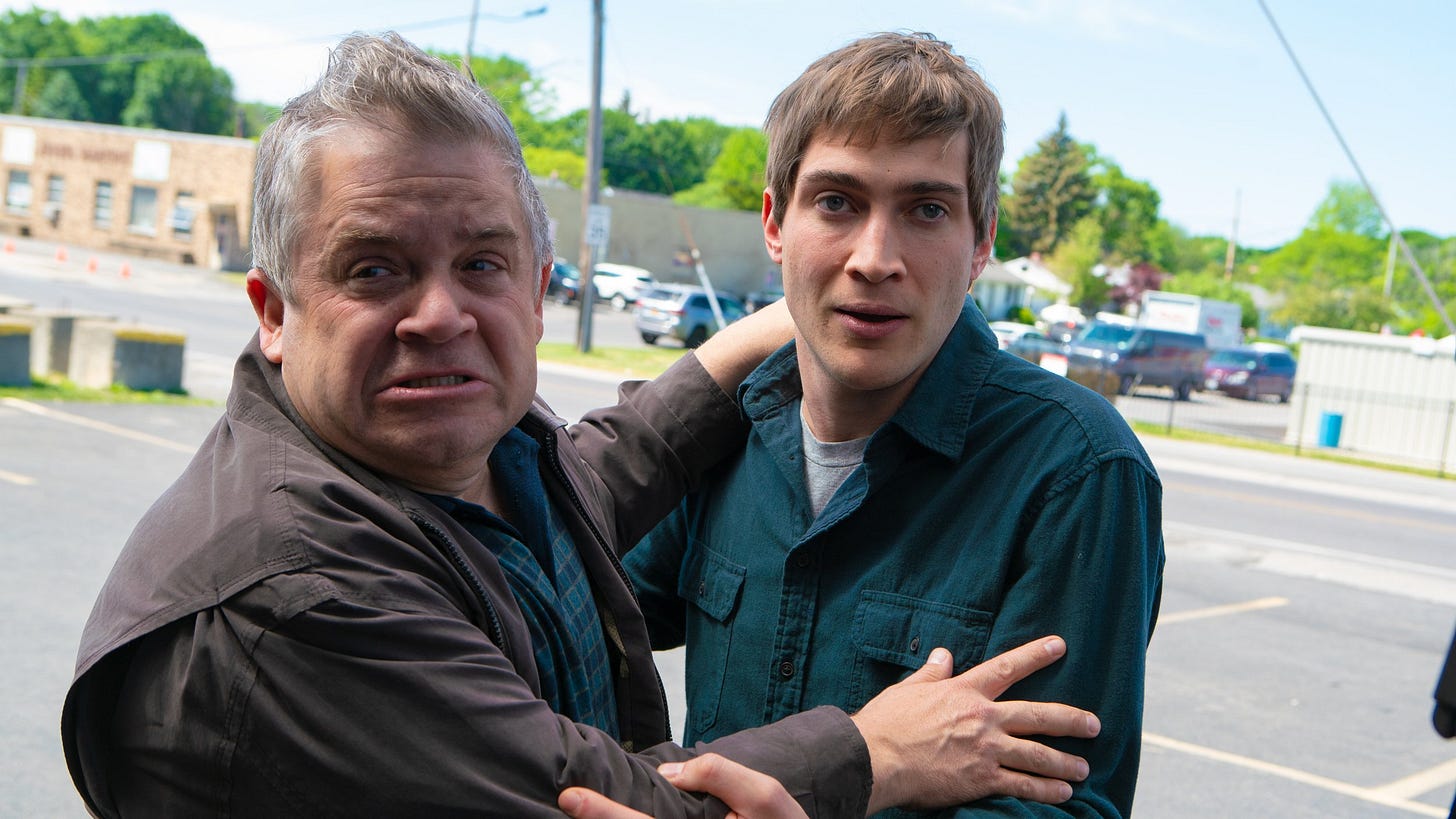
This is wild. I subscribed to your newsletter maybe a week ago because your writing is great, and your POV is truly and fascinatingly singular.
However, this review hits different for me because I produced this movie and was shooting it almost exactly 4 years ago. So reading this from you is, for lack of a better way of phrasing it, really fucking cool on a personal level.
And per usual, your take on this film is different from any other I’ve heard over the years, and wonderfully insightful.
P.S. I sent this to James Morosini. I think he’ll dig it.
I have never, nor will I ever see my father laugh; really laugh, the way a child would while eating an ice cream cone. I'm also young enough to believe that I've made peace with that.
Beautiful piece, friend. You may have hidden a lot of your traits from your father, but know that the world benefits immaculately from witnessing those very traits.